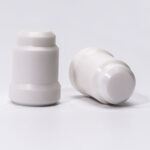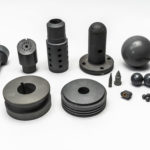Advanced ceramics are ideal materials for high-temperature applications because of their low thermal expansion, wide ranging thermal conductivity, and ability to withstand extreme temperatures under high loads without enduring damage. There are several families of advanced ceramics, including ultra-high temperature ceramics (UHTCs), which are known for maintaining their stability at temperatures of over 2000oC. Advanced ceramics are suitable for various demanding industrial processes, during which materials and equipment are subjected to high temperatures that could result in oxidation, creep, deformation, or complete failure if their properties do not suit the applications. This blog post will look at how advanced ceramics are used in industry to overcome high-temperature processes.
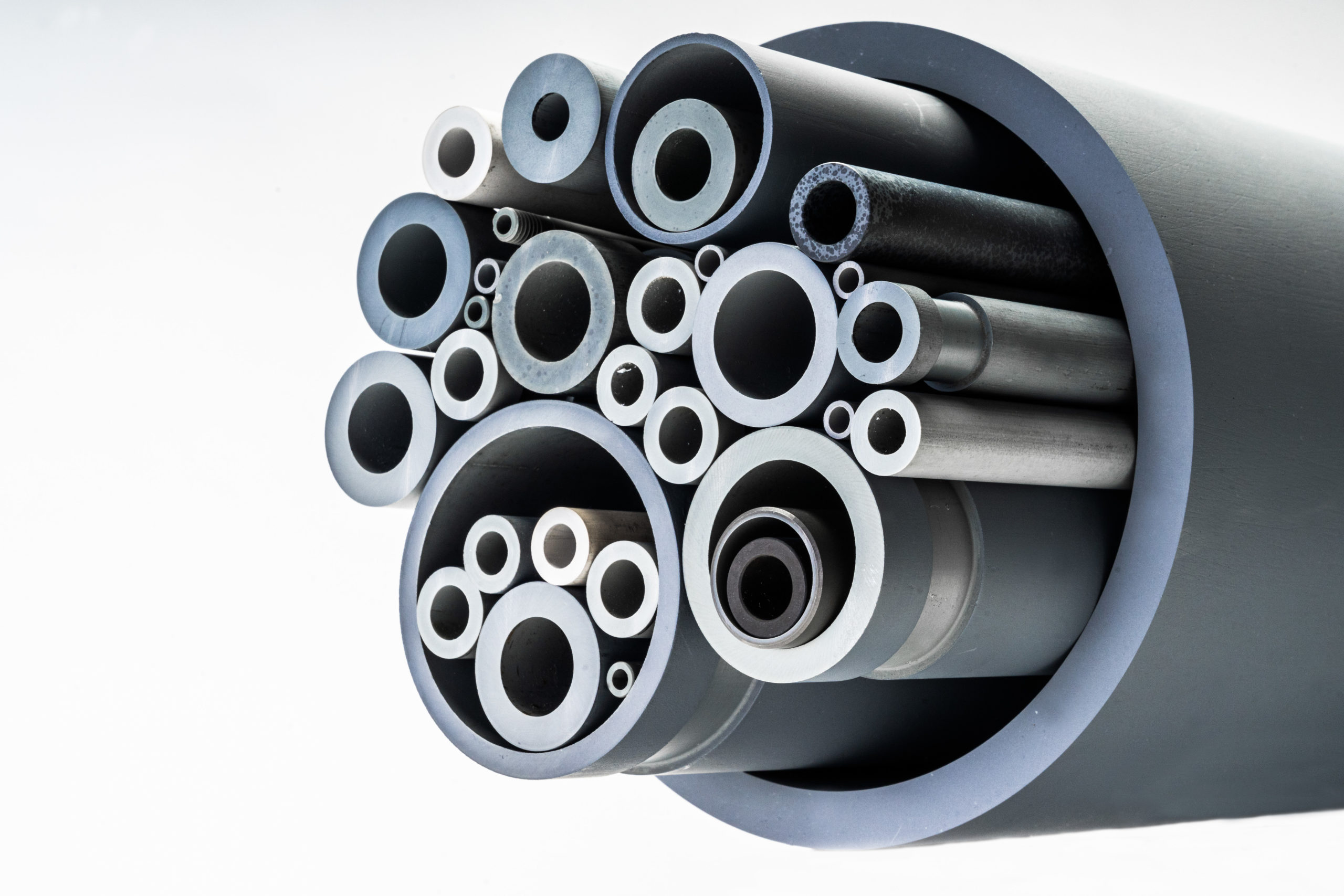
Silicon nitride thermocouple protection tubes. Image Credit: International Syalons (Newcastle) Ltd.
Case Studies of Advanced Ceramics
Many case studies are available which illustrate the properties and applications of advanced ceramics because they are used across a wide range of manufacturing and processing industries. Advanced ceramics, such as alumina, silicon carbide, silicon nitride and zirconia, are high-strength materials with excellent wear resistance, chemical resistance and high toughness that can withstand extreme industrial processes. Below, we will look at two case studies highlighting how vital advanced ceramics are in overcoming high temperatures in industry.
Case Study 1: Extrusion Dies
Extrusion dies are designed to form extruded or drawn products such as wires, tubes or rods from a starting sock billet of metal. Extrusion dies must be strong, hard wearing and thermally stable. Sialon’s hot hardness, high strength, thermal shock resistance, modulus, chemical stability and good frictional properties make it an excellent candidate for extrusion.
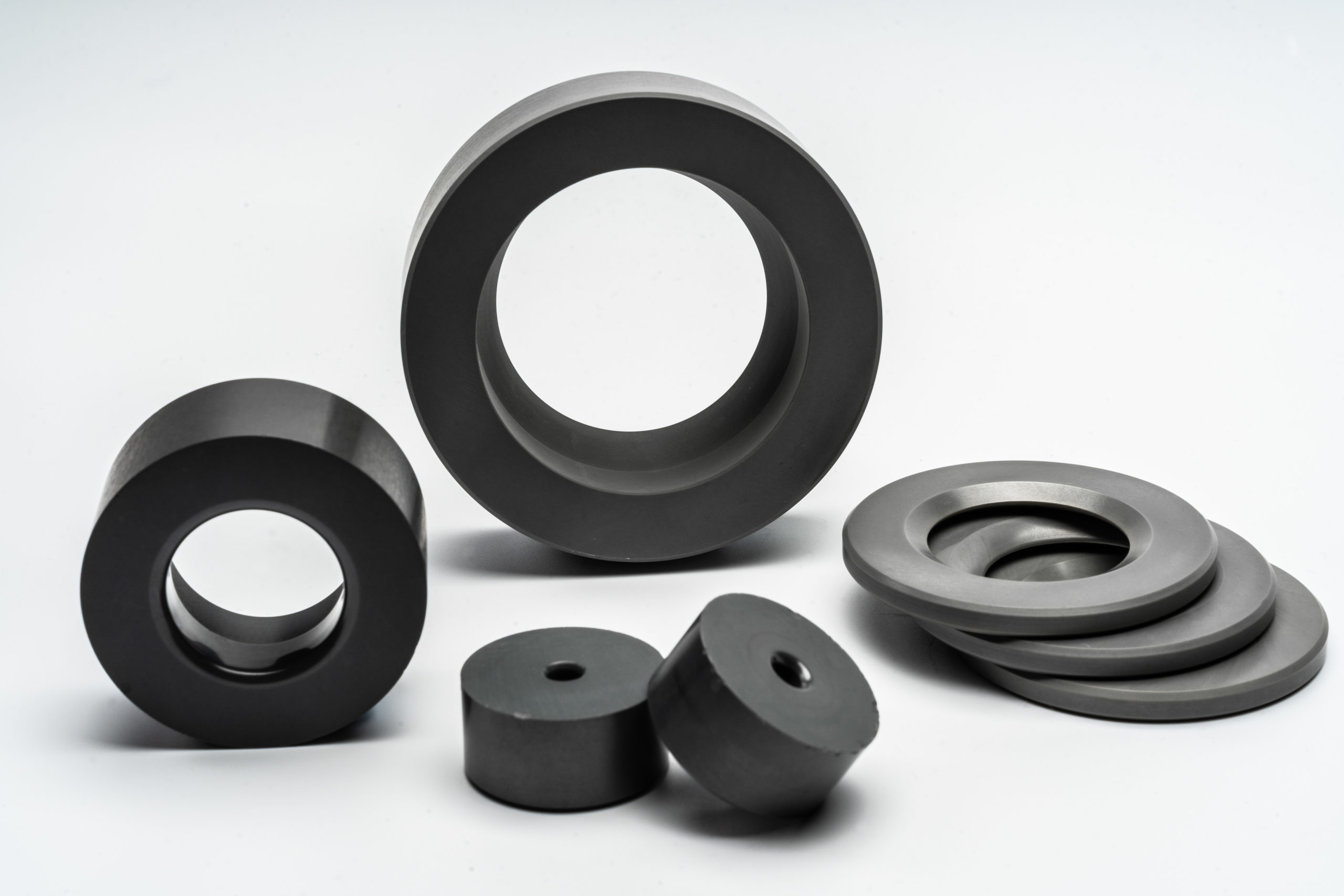
Silicon nitride extrusion dies. Image Credit: International Syalons (Newcastle) Ltd.
Often extrusion dies are manufactured from tool steel because of its hardness and machinability. However, single shot impact extrusion of nimonic components using sialon dies produced 30,000 components before excessive die wear was noticed. Tool steel dies had to be replaced at 750 components.
A major extruder of brass and copper in the UK has found that using sialon dies, 250 tons of brass could be extruded compared to 100 tons through conventional dies. For copper, Syalon extruded 75 tons compared to 40 tons for a conventional die.
Case Study 2: Thermocouple Protection Tubes
Many case studies have highlighted the properties of sialon and its ability to withstand high-temperature and high-pressure processes. One such example is in the use of Syalon 101 and Syalon 050 for thermocouple protection tubes, particularly in molten metal casting. The results below show no reaction to most molten metals, making it a favourable ceramic material for foundry handling equipment, as well as incinerator waste processing, heat exchanger tubes, and other components used in high-temperature manufacturing, chemical, and waste processes.
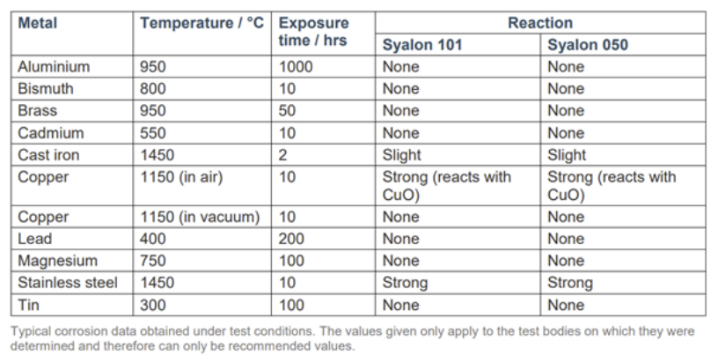
International Syalons and Advanced Ceramics
International Syalons offer a range of advanced technical ceramic products for processes that require high wear resistance and thermal stability. Many of them can be configured to suit the specific requirements of our clients. Some of our traditional ceramic solutions include balls and milling media, face plates, nozzles and weld rolls, which are engineered with advanced alumina, silicon carbide and nitride, or zirconia because of their outstanding chemical and thermal properties.
Contact a member of International Syalons today for more information on how advanced ceramics are ideal for high-temperature applications and harsh environments.

